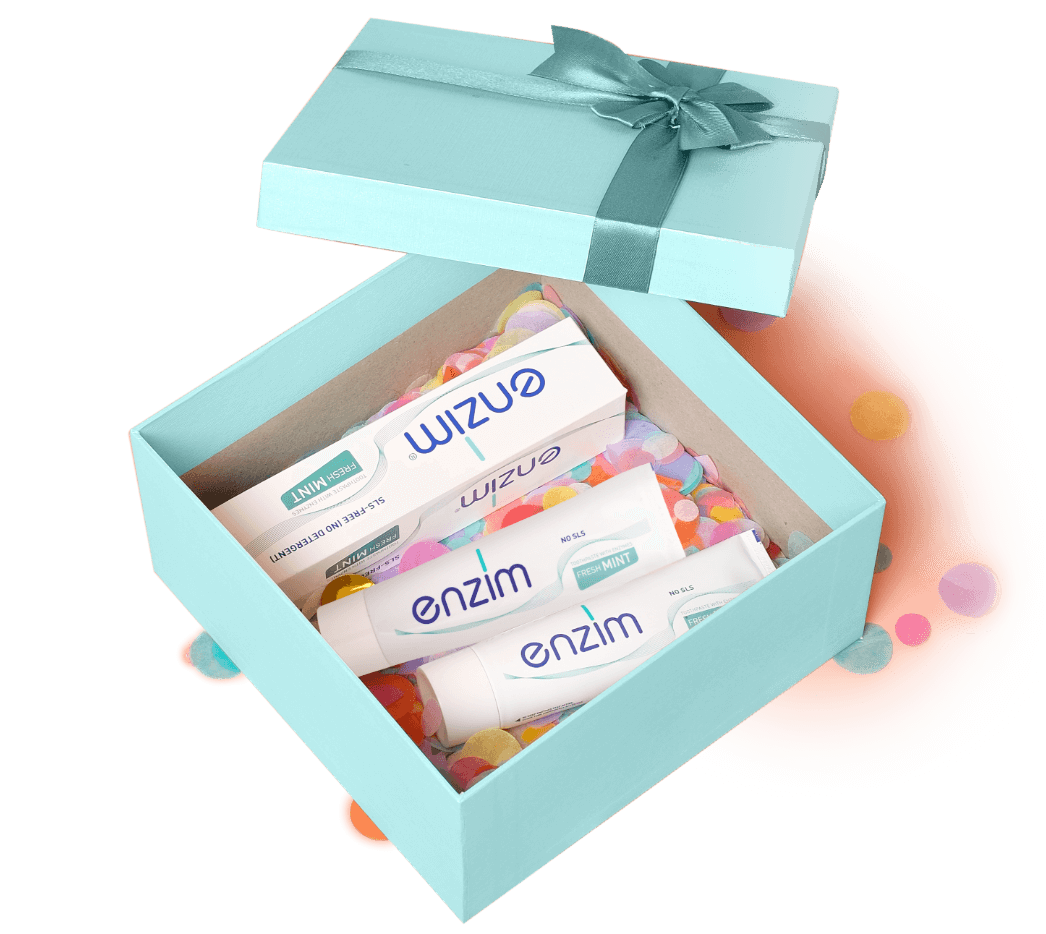The Connection Between SLS and Bad Breath: What You Need to Know

The Connection Between SLS and Bad Breath: What You Need to Know - Enzim Singapore
When it comes to oral hygiene, toothpaste plays a crucial role in maintaining fresh breath and a healthy mouth. However, not all toothpaste ingredients are beneficial for everyone. Sodium Lauryl Sulfate (SLS), a common foaming agent in toothpaste, has sparked concerns due to its potential link to bad breath and other oral health issues.
Let’s explore the relationship between SLS and bad breath and why switching to SLS-free toothpaste might be a better choice for some individuals.
What is SLS?
Sodium Lauryl Sulfate (SLS) is a detergent and surfactant widely used in personal care products like toothpaste, shampoos, and body washes. It’s responsible for creating the foamy texture many associate with cleanliness. While SLS helps remove debris and plaque from teeth, it can sometimes cause irritation and contribute to oral health concerns.
How SLS Might Contribute to Bad Breath
-
Dry Mouth
SLS can sometimes irritate the tissues in your mouth, leading to dryness. Saliva plays a vital role in washing away bacteria and neutralising acids in the mouth. A lack of saliva creates an environment where bacteria responsible for bad breath can thrive. -
Irritation of Oral Tissues
For individuals with sensitive mouths, SLS can irritate the delicate tissues inside the mouth. This irritation might lead to minor injuries or exacerbate existing issues like mouth ulcers, creating additional spaces for bacteria to accumulate and cause odours. -
Impact on Natural Oral Balance
SLS’s strong detergent properties can strip the mouth of natural proteins and enzymes that contribute to its self-cleaning abilities. This disruption of the natural balance may lead to an increase in bacteria associated with bad breath.
Why Consider SLS-Free Toothpaste for Bad Breath?
Switching to an SLS-free toothpaste can provide several benefits for those struggling with bad breath:
- Gentler on Oral Tissues: SLS-free formulas are less likely to cause irritation or dryness, making them ideal for people with sensitive mouths.
- Supports Saliva Production: Without SLS, your mouth is less prone to dryness, helping saliva maintain its protective and cleansing role.
- Maintains Natural Enzymes: Many SLS-free options are designed to support the natural balance of proteins and enzymes, enhancing your mouth's ability to fight bacteria.
Choosing the Right SLS-Free Toothpaste
If bad breath is a concern, look for toothpaste options specifically formulated to address this issue without SLS. Enzyme-based toothpaste, like Enzim Fresh Mint, can be particularly effective. They work by enhancing the natural defence mechanisms of your saliva, combatting bacteria, and ensuring fresher breath.
Final Thoughts
While SLS is not harmful to everyone, it can exacerbate bad breath in certain individuals due to its drying and irritating effects. If you’ve tried other remedies and still struggle with halitosis, switching to an SLS-free toothpaste might be worth considering. By making this simple change, you can support a healthier oral environment and enjoy long-lasting fresh breath.
Discover the Benefits of SLS-Free Toothpaste
Ready to make the switch? Try an SLS-free toothpaste and experience the difference for yourself. Your journey to fresher breath starts here!
